Elevate Your Cybersecurity Game with Managed IT Services
Last Updated on May 27, 2023
Cybersecurity has become a critical concern in an era where digital technology is at the heart of business operations. Managed IT Services, with integrated cybersecurity measures, are emerging as a key solution to this challenge.
Table of Contents
- 1 Understanding Cybersecurity in Managed IT Services
- 2 The Importance of Cybersecurity
- 3 The State of Cybersecurity
- 4 Key Components of Security Operations
- 4.1 Risk Assessment: Understanding Your Current Security Posture
- 4.2 Virtual Chief Information Security Officer (vCISO): Consistent Security Expertise
- 4.3 Multifactor Authentication (MFA): More Than Just Passwords
- 4.4 Intrusion Detection and Response (IDR): Active Network Monitoring
- 4.5 Endpoint Detection and Response(EDR): Advanced Protection Techniques
- 5 The Role of Employees
- 6 The Future of Cybersecurity in Managed IT Services
- 7 Conclusion
- 8 FAQ
Understanding Cybersecurity in Managed IT Services
Managed IT Services involve outsourcing a company's IT operations to a third-party provider, also known as a Managed Services Provider (MSP). These services range from network management and data backup to end-user support and system monitoring.
When we discuss IT security in the context of Managed IT Services, we're referring to the suite of strategies and measures put in place by the MSP to protect the client's digital assets from cyber threats. This includes safeguarding data from unauthorized access, detecting potential security threats, and implementing preventive measures to mitigate the risk of cyberattacks.
The Importance of Cybersecurity
The rise in cyber threats, ranging from data breaches and phishing attacks to ransomware and DDoS attacks, has made it abundantly clear that no business is immune to cyber risks.
The COVID-19 pandemic has further amplified these risks, with businesses rapidly shifting to remote work and increasingly relying on digital tools and platforms. While beneficial in many ways, this digital transformation has also expanded the attack surface for cybercriminals.
Moreover, the cost of a cyberattack can be devastating. According to a report by Cybersecurity Ventures, the global cost of cybercrime is expected to reach $10.5 trillion annually by 2025. This includes direct damages and post-attack disruption to the normal course of business.
But the impact of a cyberattack extends beyond financial loss. It can also lead to loss of customer trust, damage to brand reputation, and in some cases, legal repercussions.
Given these risks, it's clear that businesses need to prioritize security. And this is where Managed IT Services come in. By partnering with a reliable MSP, businesses can access expert IT security services, stay updated with the latest security trends, and focus on their core operations without worrying about digital security.
The State of Cybersecurity
The landscape of cybersecurity is constantly changing. It's marked by emerging trends that shape how we protect our digital assets, as well as challenges that test the resilience of our security measures. Managed IT Services are pivotal in navigating this landscape, offering solutions that address these trends and challenges head-on.
Current Trends and Challenges in IT Security
One of the most significant trends in cybersecurity is the increasing sophistication of cyber threats. Cybercriminals are constantly devising new methods to infiltrate networks and systems, using advanced techniques such as artificial intelligence and machine learning. This has led to the rise of threats like deepfake technology, AI-powered malware, and more.
Another trend is the growing regulatory landscape. With data breaches becoming more common, governments worldwide are implementing stricter data protection regulations. Businesses must now comply with standards like the General Data Protection Regulation (GDPR) in Europe and the California Consumer Privacy Act (CCPA) in the U.S.
On the flip side, one of the biggest challenges is the lack of skilled professionals. The cybersecurity skills gap is well-documented, with millions of positions left unfilled worldwide. This shortage of expertise makes it difficult for businesses to keep up with the rapidly evolving threat landscape.
Moreover, the increasing complexity of IT environments poses another challenge. With the adoption of cloud services, IoT devices, and remote work setups, managing and securing these diverse environments can be daunting.
The Role of Managed IT Services in Addressing These Challenges
Managed IT Services are uniquely positioned to address these trends and challenges. With a team of cybersecurity experts, MSPs can provide the necessary skills and expertise many businesses lack. They stay up-to-date on the latest threats and security measures, ensuring your business is always one step ahead of cybercriminals.
Regarding regulatory compliance, MSPs can help businesses navigate the complex landscape of data protection laws. They can ensure that your business's data handling practices align with the relevant regulations, reducing the risk of costly fines and reputational damage.
Furthermore, MSPs can simplify the management of complex IT environments. They can provide comprehensive security solutions that cover all aspects of your IT infrastructure, from network security and endpoint protection to cloud security and data loss prevention.

Key Components of Security Operations
Fully managed services encompass a wide range of solutions designed to protect your business from cyber threats. Let's delve into some of the key components that form the backbone of these services.
Risk Assessment: Understanding Your Current Security Posture
Understanding your current security posture is one of the first steps in establishing a robust cybersecurity strategy. This involves identifying potential vulnerabilities in your IT infrastructure, assessing the impact of different cyber threats, and evaluating your security measures.
Managed IT Services providers conduct comprehensive risk assessments to provide a clear picture of your digital landscape. They use advanced tools and methodologies to uncover any weak spots in your defenses and provide recommendations to strengthen them. This proactive approach helps in preventing security incidents before they occur.
Virtual Chief Information Security Officer (vCISO): Consistent Security Expertise
A vCISO is a security professional providing part-time leadership and information security expertise. They play a crucial role in developing and implementing your cybersecurity strategy, ensuring compliance with regulations, and educating your team about security best practices.
For many businesses, hiring a full-time CISO can be cost-prohibitive. This is where a vCISO comes in. MSP providers offer vCISO services, giving you access to top-tier security expertise at a fraction of the cost of a full-time hire.
Multifactor Authentication (MFA): More Than Just Passwords
Multifactor Authentication (MFA) adds an extra layer of security by requiring users to provide two or more verification factors to gain access to a resource.
Managed IT Services providers can implement MFA across your IT environment, ensuring only authorized individuals can access your systems and data. This significantly reduces the risk of unauthorized access, even if a password is compromised.
Intrusion Detection and Response (IDR): Active Network Monitoring
Intrusion Detection and Response involves continuously monitoring your network for suspicious activity and responding swiftly to potential security incidents. This proactive approach lets you detect and mitigate threats before they cause significant damage.
Managed IT Services providers use advanced IDR solutions that leverage artificial intelligence and machine learning to detect anomalies and potential threats in real time. They also provide incident response services to contain and eliminate threats, minimizing their impact on your business.
Endpoint Detection and Response(EDR): Advanced Protection Techniques
Endpoint Detection and Response is a security solution focusing on detecting, investigating, and mitigating suspicious activities on endpoints, such as laptops, desktops, and mobile devices.
Managed IT Services providers use EDR solutions to monitor and respond to advanced threats continuously. These solutions use behavioral analysis, threat intelligence, and automated response capabilities to protect your endpoints from modern hacking techniques.
The Role of Employees
The human element, represented by your employees, plays an equally crucial role. Let's explore how employees fit into the cybersecurity puzzle and why their involvement is important.
The Importance Training
Cybersecurity isn't just the responsibility of your IT department or Managed IT Services provider; it's a company-wide concern. Every employee who uses a computer, smartphone, or other devices connected to your network can potentially expose your business to cyber threats.
This is why Cybersecurity Awareness Training is so important. Such training programs educate your employees about various cyber threats, from phishing scams and ransomware attacks to social engineering tactics. They also provide guidelines on safe online practices, such as using strong passwords, identifying suspicious emails or websites, and reporting potential security incidents.
Security providers often offer Awareness Training as part of their service offerings. They can tailor these programs to your needs and update them regularly to address the latest threats.
The Role of Employees in Maintaining Cybersecurity
Employees are on the front lines when it comes to cybersecurity. They are the ones who interact with emails, websites, and software applications daily.
By following the guidelines provided in Cybersecurity Awareness Training, employees can help prevent security incidents. This includes not clicking on suspicious links, not sharing sensitive information without verification, and using secure networks when accessing company resources.
Moreover, employees can act as an additional layer of defense by reporting any unusual activity or potential security incidents. This allows your IT team or Managed IT Services provider to promptly investigate and respond to these incidents.
The Future of Cybersecurity in Managed IT Services
As we look toward the future, it's clear that cybersecurity will continue to be a top priority for businesses of all sizes and across all industries. With their comprehensive and proactive approach to cybersecurity, managed IT Services are poised to play a significant role in this future landscape.
Predicted Trends and Advancements in the Field
Cybersecurity constantly evolves, with new threats emerging and solutions being developed to counter them. Here are a few trends and advancements we can expect to see in the future:
- Increased Use of Artificial Intelligence and Machine Learning: These technologies are already being used in IT solutions, and their use is expected to increase. They can help automate threat detection, predict potential vulnerabilities, and speed up incident response times.
- Greater Focus on Cloud Security: As more businesses move to the cloud, securing these environments will become increasingly important. We can expect to see more advanced cloud security solutions and services.
- Rise of Zero Trust Security Models: The zero trust model, which assumes that any device or user could be compromised, will likely become more prevalent. This approach requires robust identity and access management solutions and a security operation center (SOC) which Managed IT Services providers are well-equipped to provide.
The Future of Cybersecurity
Managed IT Services providers will continue to be key players in the field. They are uniquely positioned to help businesses navigate the evolving threat landscape and implement the latest security solutions.
We can expect these providers to offer more advanced and tailored cybersecurity services in the future. They will likely make greater use of AI and machine learning in their services, offer more comprehensive cloud security solutions, and help businesses implement zero-trust security models.
Furthermore, as cybersecurity regulations evolve, Managed IT Service providers will play a crucial role in helping businesses stay compliant. They can provide up-to-date knowledge of regulatory changes and ensure that businesses' security practices meet the required standards.
Conclusion
In the journey through the cybersecurity landscape, we've explored the definition, importance, key components, and future trends of this crucial aspect of modern business operations.
Managed IT Services offer a comprehensive and proactive approach to cybersecurity. They provide a suite of services, including risk assessment, vCISO, MFA, IDR, and EDR, that work together to protect your business from cyber threats. They also offer training to ensure that your employees, who are on the front lines of your security defenses, are well-equipped to identify and respond to potential threats.
Thank you for taking the time to read about the importance of Managed IT Services in enhancing your business's cybersecurity. If you have any questions or concerns about cybersecurity, we're here to help. If your business is located in Miami or the surrounding areas, we invite you to reach out to us. We're offering a free consultation where we can assess your business's cybersecurity needs and provide tailored solutions. Don't leave your cybersecurity to chance – contact us today, and let's secure your digital future together.
FAQ
What is a Managed Cybersecurity Service? It helps businesses protect their digital assets from cyber threats. These services include risk management, network security, incident response, and more.
How does a Managed Service Provider (MSP) enhance security? They provide a suite of services to protect your business from cyber threats. These services include managed detection and response, firewall management, and around-the-clock monitoring.
What are the benefits of outsourcing cybersecurity to an MSP? The benefits include access to expert security analysts, advanced security tools, and around-the-clock monitoring services. MSPs can also help businesses stay ahead of the evolving cybersecurity landscape and ensure up-to-date security protocols.
How does Managed Services help with risk management? It helps with risk management by identifying potential vulnerabilities in your IT infrastructure and implementing measures to mitigate these risks. This proactive approach helps prevent security incidents before they occur.
What role does a Managed Service Provider play in network security? In terms of network security, an MSP can monitor and manage your network to detect and respond to threats in real time. They can also implement security controls such as firewalls and intrusion detection systems to protect your network from cyberattacks.
Can Managed Services help small and medium-sized businesses (SMBs)? Yes, it can be particularly beneficial for SMBs, which often lack the resources to build and operate a full-fledged internal security team. An MSP can provide a holistic cybersecurity solution tailored to the needs of SMBs, ensuring their digital assets are protected as their business grows.
What is the future of Managed Cybersecurity Services? The future looks promising. With advancements in technology and the evolving threat landscape, these services are set to become even more important. Future trends include increased use of artificial intelligence in threat detection and response, a greater focus on cloud security, and the rise of zero-trust security models.
How can Managed Security Services help protect against new security threats? It helps you stay ahead of new security threats by continuously monitoring security operations and updating services accordingly. They can quickly implement new security measures and protocols to protect your business from emerging threats.
How do managed cybersecurity services differ from in-house cybersecurity teams?
Managed cybersecurity services provide solutions provided by cybersecurity experts that specialize strictly in managing the security needs of organizations, whereas an in-house cybersecurity team has to keep up to date with many different aspects of the company.
What should I look for in a managed security services provider?
You should look for a provider with a solid reputation, quality services, cybersecurity expertise, around-the-clock monitoring and management, and a proactive approach to security.
What are the benefits of outsourcing cybersecurity operations to a managed security service provider?
The benefits include access to security experts, a better understanding of the security landscape, cost savings, access to software that may be too expensive to purchase in-house, and the ability to implement a security management program tailored to the organization's specific security needs.
What does physical security mean in the context of cybersecurity services?
Physical security refers to the safeguards put in place to protect an organization's physical assets, such as access control systems, CCTV cameras, and burglar alarms.
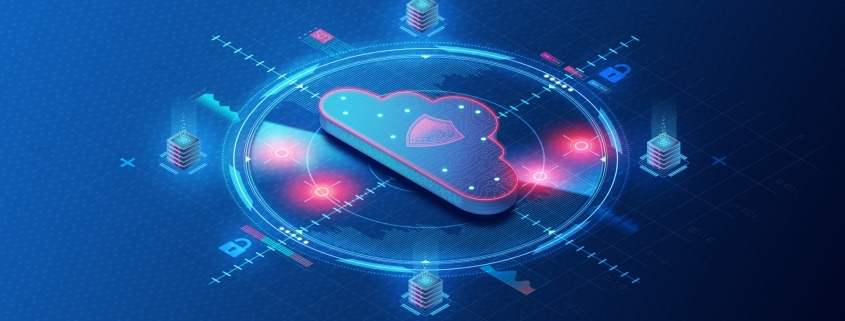
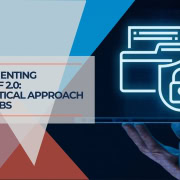

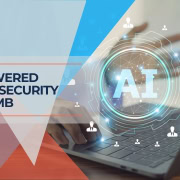
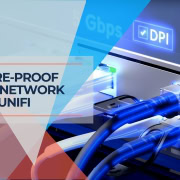
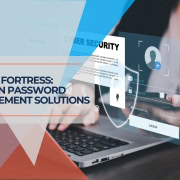
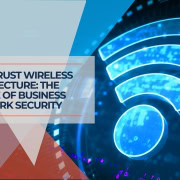
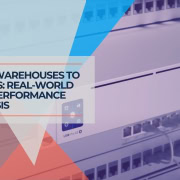



Leave a Reply
Want to join the discussion?Feel free to contribute!